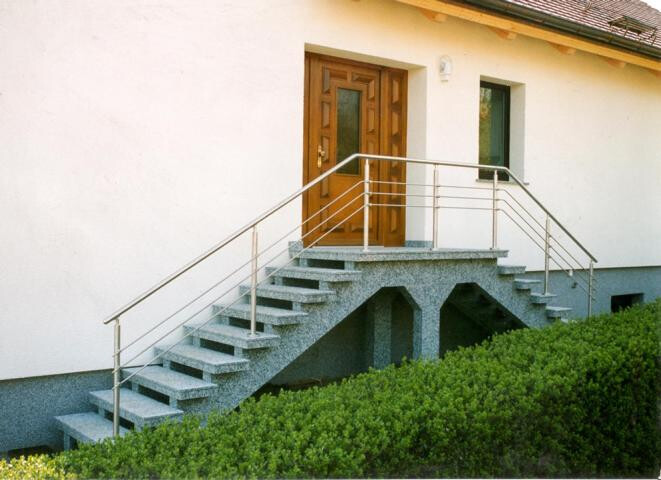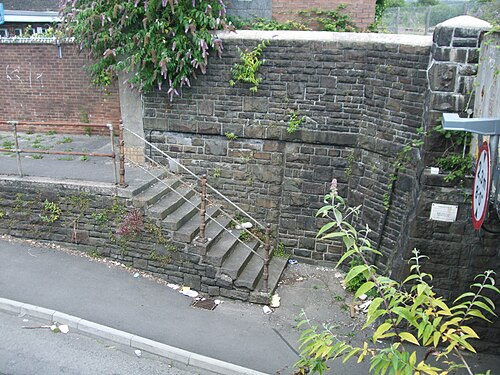How can raw natural rock be unpaved? Or paved for that matter? Why it would even matter?
(unless it is joke, then sorry for not getting it)
How can raw natural rock be unpaved? Or paved for that matter? Why it would even matter?
(unless it is joke, then sorry for not getting it)
raw natural rock is “unpaved” I think, because it is not paved (nobody has paved it).
Let me try to find out why the confusion: It might be on my side!
surface=rock; material=granite is always natural/unpaved
surface=*stone; material=granite is always manufactured/paved
So, if it is paved, rock turns into stone. Sorry for the noise!
PS: Still words like
Natural rock, with nearly no processing used to pave a mountainous path. [Tag:surface=rock - OpenStreetMap Wiki]
do not help against confusions like mine.
ops
I guess one more reason to get surface=bare_rock and surface=unhewn_stone
I have some stairs with blocks of solid granite. What would you put in for surface=* - rock?
What kind of granite? Can you upload or link a photo?
Machined into flat pieces of stone? surface=paving_stones
Roughly cut? surface=sett
Uncut pieces of rock? surface=unhewn_cobblestone
Natural rock, maybe with some minimal cutting/shaping? surface=rock

This is what it looks like. No idea what type of granite that is,
I would use paving_stones (and treat them as large rectangular paving stones made of a natural stone)
In my mind, paving_stones requires multiple blocks arranged in some kind of pattern. If the entire surface is made from a single piece, that value doesn’t fit.
Think to have come across something that was called concrete slabs or plates, so went to search. Well openstreetmap+slabs and one of the top results in bing was Tag:surface=paving_stones - OpenStreetMap Wiki although ‘slabs’ is not mentioned once in that wiki page.
With paving_‘stones’ I think (dare I) of a format that can be easily handled by one so we certainly could do with a paving_slabs or paving_plates to express that dimension as seen above of the polished stone steps.
Not an expert, but I would say slabs is just another word for paving stones (though often made from concrete).
These are steps I would tag as paving_stones:
The ones Nadjita showed are just surface=stone to me. Not available on StreetComplete so I don’t answer the quest. paving_stones feels wrong
I also wonder, why we have material=* and paving_stone:material=*. Why should I use something like paving_stone:material=concrete over material=concrete?
In theory, these steps don’t have a separate surface, as they are just a big chunk if granite, so material=granite would be correct. But after looking at this more closer, it seems that material and surface have a lot of overlapping which makes it confusing. Actually, the surface should better describe the structure of the surface than the material, unless the material of the surface differs from the main material. So something like surface=flat for my case, paired with material=granite? I find this all very confusing.
I’m guessing because proponents wanted all paving_stone:* subtags to neatly fit under same hierarchy?
But after looking at this more closer, it seems that material and surface have a lot of overlapping which makes it confusing
Yes. But you could have steps made from granite, while the surface is for example anti-slip rubber. Or a bridge with metal construction but with wooden planks, etc.
But I do think paving_stones people are taking that details mapping somewhat to the extreme (I’m not making those up):
surface=paving_stonespaving_stones:shape=squarish_octagonpaving_stones:pattern=interleavedpaving_stones:length=20paving_stones:width=25paving_stones:colour=#56544cpaving_stones:orientation=45paving_stones:material=graniteBut I guess, whatever makes people happy is good ![]()
But now I want 3D renderer which will take all those into account!
Entire steps are still made from multiple pieces.
And how would you tag narrow steps, with each step made out of single square paving stone piece?
As far as i know, paving stones imply rather small to medium sized blocks. In my opinion it doesn’t fit for larger stone slabs or blocks which are ofen used for steps.

Anyway, i don’t like surface=paving_stones because ‘paving stones’ can mean a lot of different things: concrete paver, grass paver, natural flagstones, cobblestones, sett etc. It would be better to introduce more specific keys (i.e. concrete_paver and natural_flagstone) in my opinion.
The problem ist that there’s no clear separation between surface and material, and also the material of the surface. As long as there’s a mix between these 3 put into the surface tag, you will only make it more confusing to forbid the use of something like granite or marble for surface, while on the other hand having concrete and asphalt being the most common ones.
Either we start a proper categorization, or we accept that this is a kind of muddy area and that everyone knows what steps with surface granite or marble are: slippery when wet, yet nice to look at.
It would be better to introduce more specific keys (i.e.
concrete_paverandnatural_flagstone) in my opinion.
oh, my comments were assuming that we use currently use surface values rather than inventing new ones
As far as i know, paving stones imply rather small to medium sized blocks. In my opinion it doesn’t fit for larger stone slabs or blocks which are ofen used for steps.
I would say that step-sized ones are still medium for me